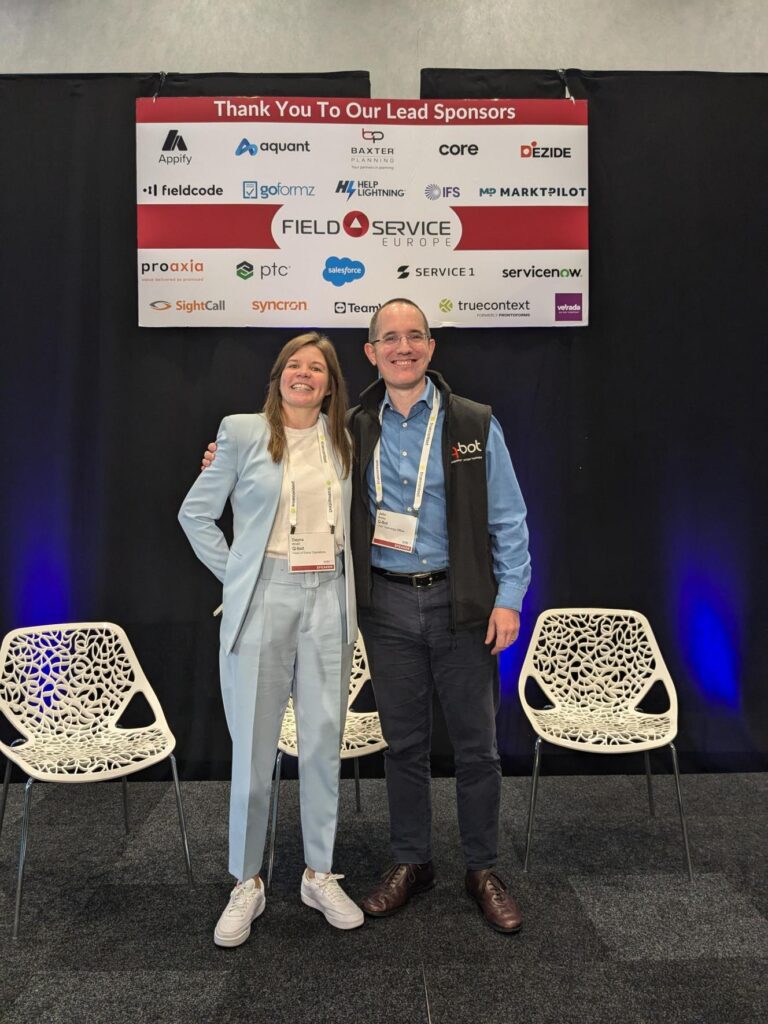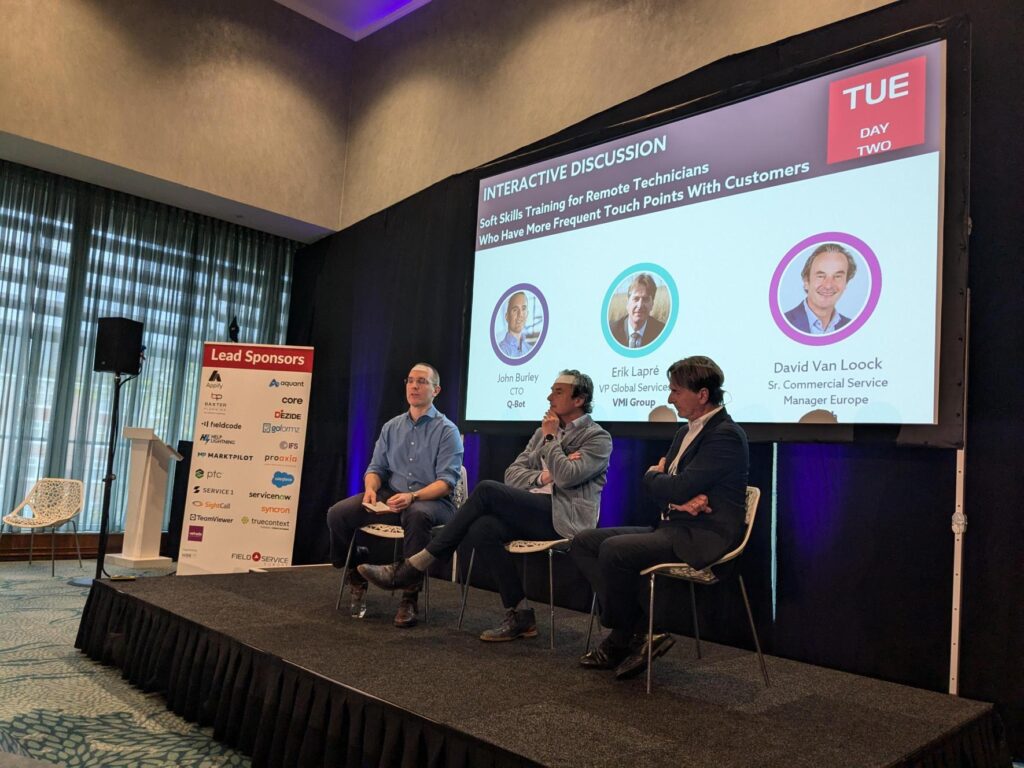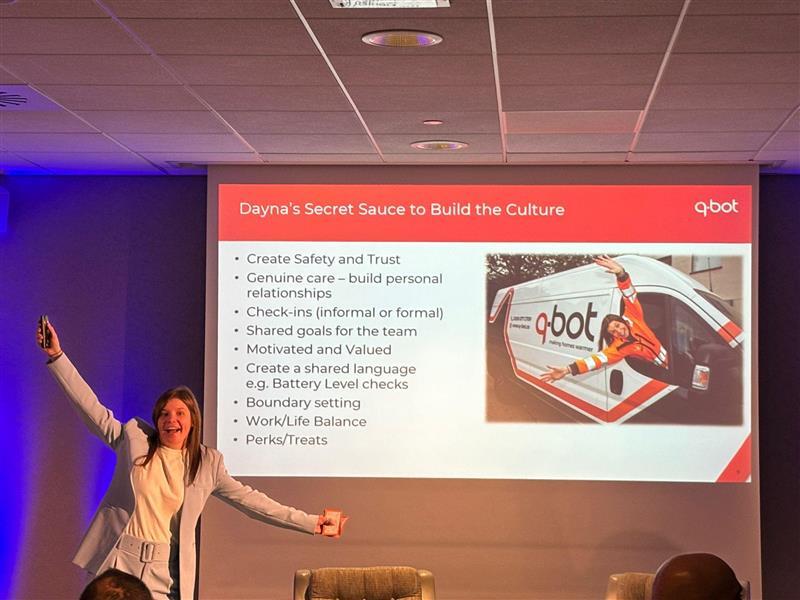Q-Bot at Field Service Europe 2024
Author: Dayna Kivell
The Field Service Europe 2024 conference brought together industry leaders and professionals to discuss the latest innovations and best practices in field service management. It provided a platform for networking, sharing insights, and exploring strategies to enhance customer experience and operational efficiency. Key themes included technology integration, workforce management, and the importance of fostering a positive organisational culture.


Q-Bot was honoured to participate in this exciting event, with John Burley hosting a roundtable on “The Hidden Costs of Poor Triage and How to Improve.” This discussion focused on the challenges faced by field service engineers in fault-finding and part-replacing, whether servicing over the phone or dispatching engineers on-site. John also moderated a panel on “Soft Skills Training for Remote Technicians,” emphasising the need for improved interviewing processes to identify candidates with essential interpersonal skills. Ideas included implementing “refer a friend” schemes to attract like-minded professionals and fostering a culture of ongoing training and development.
These discussions underscored the importance of not only technical expertise but also soft skills in delivering exceptional service and enhancing customer satisfaction.


I had the exciting opportunity to present on Building a Positive Mental Health and Wellbeing Culture for Front-Line Field Service Engineers, where I highlighted the significance of cultivating a culture of positive mental health and well-being for frontline field service employees. Drawing on my experience at Q-Bot, where I lead teams servicing robotic insulation technology, I illustrated how mental health exists on a spectrum that can fluctuate daily—much like a battery level.
I conveyed that creating a supportive environment is everyone’s responsibility. Organisations need to implement policies that prioritise mental health and ensure effective well-being strategies. Individuals must communicate their needs, identify stress triggers, and support one another collaboratively. Managers and leaders must set the tone by engaging in open dialogues, leading by example, and creating a culture of trust and safety. By advocating for proactive mental health conversations and addressing the unique stresses field service employees face—such as isolation, time pressure, servicing essential systems and irregular hours—I underscored that mental well-being must be prioritised alongside physical safety.
At the end of my talk, I encouraged everyone to ensure that what happens in Amsterdam doesn’t stay in Amsterdam. I set the homework for attendees to check in on someone back at their workplace and ask three important questions: 1. How are you? 2. What is your battery level? 3. What can I do to support you better? By doing this, we can all contribute to building a culture of positive mental health and well-being in our organisations.

